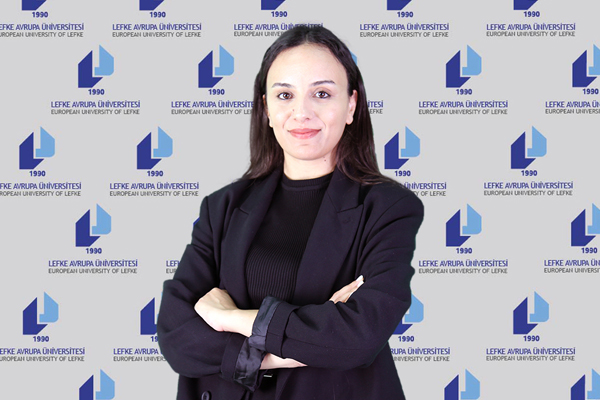EUL Faculty Member Elmas, drew attention to the issue of Food Neophobia in Childhood…

European University of Lefke (EUL) Faculty of Health Sciences, Department of Nutrition and Dietetics faculty member Asst. Prof. Dr. Cemre Elmas provided information on ‘Food Neophobia in Childhood’.
Elmas ‘Childhood is analysed into 4 groups Toddler Period (’Toddler Age) (1-3 years); Preschool Period (3-6 years); School Age Period (6-10 years); Adolescent Age (10-19 years). This wide period is important in many respects, and being the period in which lifelong ‘nutritional habits’ are shaped, it is also of great importance in terms of health.’ Elmas added that in this period, proper – healthy eating habits can develop, as well as some problems related to nutrition that are often encountered, and one of these problems is “Food Neophobia”. Elmas emphasised that food neophobia is generally defined as individuals being reluctant to eat food that they represent as new because they do not know or have not consumed it before, or avoiding new foods.
‘The most common cause of childhood food neophobia is children’s prejudice about the appearance of unknown foods’
Elmas made explanations about food neophobia: ‘The causes of food neophobia may be different in each age group. For example; while the main reason for the underlying mechanism in the adult group is mostly the concern that new foods may contain nutrients that may harm human health, it is known that this may be a perceptual, non-cognitive, and intuitive response that is specific to food in early childhood. The most common cause of food neophobia, especially in childhood, is children’s prejudice about the appearance of unknown foods. Environmental factors (family effect, role model effect), genetic factors, cognitive factors, biological factors, demographic factors, and psychological factors can be classified as factors affecting food neophobia. Nutritional habits, which begin to be shaped by the mother’s nutrition during pregnancy, are shaped in the maternal womb and continue to be shaped in later periods. The period of breastfeeding, the age, and the frequency of the baby’s exposure to food are very effective in the baby’s recognition of food. Certain behaviours or rules (feeding practices) used by parents to control what, how much, and when their children eat during the transition from infancy to childhood are also effective factors. It is known that situations such as excessive controlling behaviour of the family, and environmental pressure, including restricting food access or pressurising for food in childhood, create an emotionally negative atmosphere related to food on children. In addition, many different factors such as dietary diversity for new food products, inadequate nutrient intake, and high failure of products in terms of flavour and visual appearance may be associated with the formation of food neophobia. It is important to determine the extent of this problem. By using the ‘Food Neophobia Scale’, which was developed and can be applied by experts in this field, children’s tendency to be neophobic towards food can be determined. Many studies have shown that children with a high tendency of food neophobia in childhood are more selective and this leads to a decrease in dietary diversity and inadequate nutrient intake. It is claimed that food neophobia is especially effective on fruit and vegetable intake. It is also stated that the diet pattern may change in the direction of a high-fat diet due to inadequate fruit and vegetable intake, and there may be deficiencies in some vitamins. Accordingly, it is seen that food neophobia may be associated with both low (underweight) and high (obesity) body weight.’
Elmas finally stated that ‘Considering the health problems that may occur as a result of food neophobia in childhood, studies are being carried out to prevent these problems and to develop effective intervention techniques that can positively change children’s eating behaviours today’ and that parents are at the centre of these studies. Elmas continued: ‘One of the mistakes made about food neophobia, especially in children, is that a food that is not liked at first is removed from the diet by the parent without trying it again. However, it is emphasised in the literature that if an initially disliked food is tried at least 8-15 times, its consumption may gradually increase. This method is one of the most effective and frequently used methods to solve this problem in children with neophobic tendencies. In addition, informing children with food neophobia about the new food is another important issue. By conveying the positive aspects of the food, the child with food phobia can both reduce his/her anxiety and increase his/her willingness to try the new food. Role modelling by adults can effectively increase food acceptance among children with food neophobia. Likewise, role modelling by peers may increase food acceptance in childhood. Introducing new foods in a peaceful environment where the child has fun with his/her friends may yield positive results. To enable children to consume a new food, making it similar to another food that they already know and prefer is one of the practices that will contribute to facilitate the consumption of the new food. It is very important to inform families and/or children about these and similar situations that can be prevented with such practices. It is of great importance to reach parents and children with educational programs in which experts will discuss what to do and provide training that will raise awareness.’
